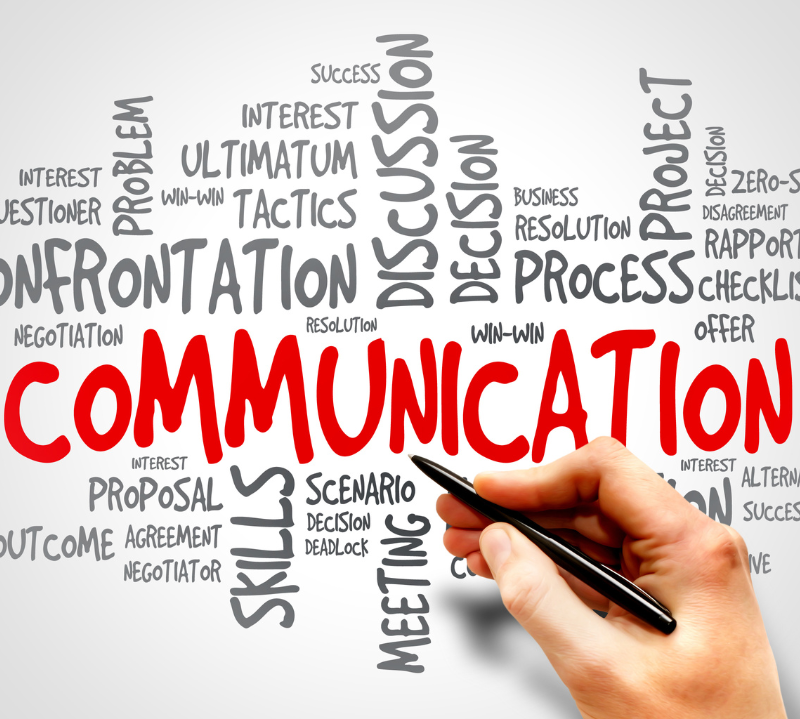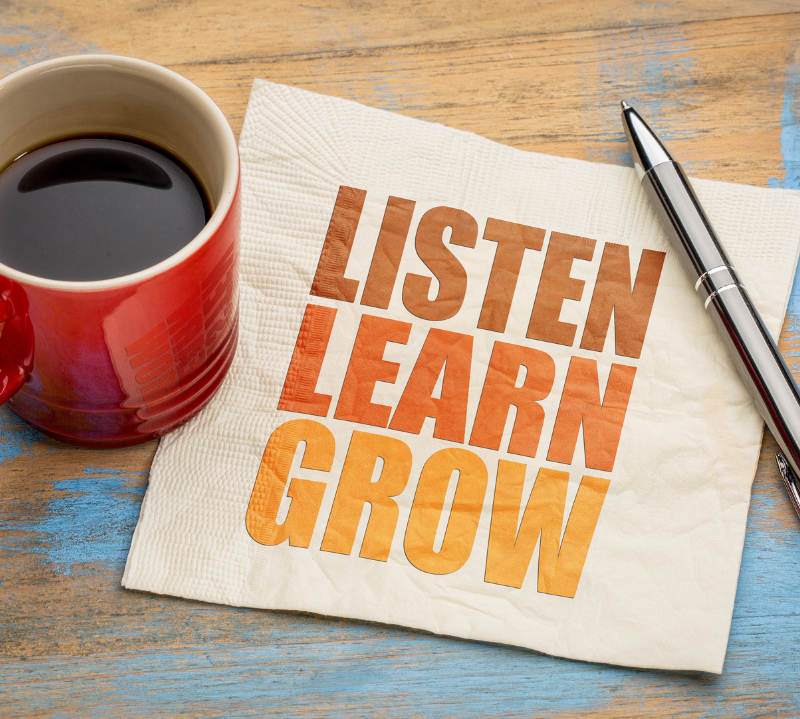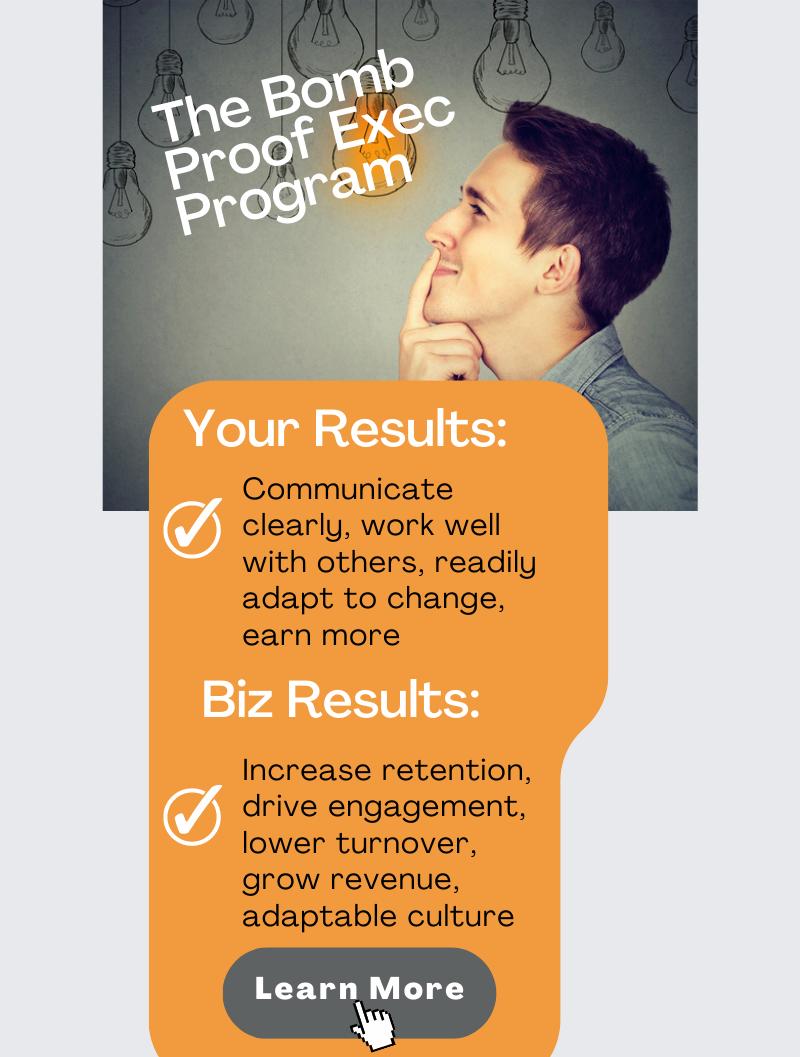Listen, learn and grow

Listen, learn and grow

Written by Tracey
Ever had an altercation with someone at work and your response was to freeze? How do you even know you’re frozen? What can you do about it?
Imagine a super charged situation in which an employee new to their role, “freezes” during an aggressive confrontation with their supervisor (also new in their role).



Conflict is inevitable but combat is optional. ~ Max Lucado
Ah! An amygdala hijack. Interesting to read about, not fun to experience. (Amygdala hijack – occurs when the amygdala activates the fight, flight or freeze response when there is no serious threat to a person’s safety.) 24 hours later you may still feel the effects of the altercation. Although science says that it takes 6 seconds for the chemicals released during a hijack to clear our bodies, many people report that they feel the physical and emotional effects for many hours after.
It’s a challenging situation to be in, maintaining professionalism while successfully navigating conflict and upset. A challenging personal and professional goal is to accept these situations as opportunities for creativity and innovation. “Some of the most creative ideas arrive when people in conflict remain in conversation with one another rather than flying into their own corners or staking out entrenched positions. The challenge for leaders is to develop structures and processes in which such conflicts can be orchestrated productively.” Ronald Heifetz and Marty Linsky
Here are some ways for you to stay present during tricky situations:
Breathe – oxygenating before, during and after a potentially tense meeting with someone who “spooks” us, is key to remaining grounded. Breathe mindfully, think about channeling your breath to and through your heart. (HeartMath)
Somatics – we can get present by shifting our body state or noticing things about our body. Tense jaw > release jaw, clenched fists > stretch fingers out, grinding teeth > relax and breath, upset stomach > bring attention to calming the stomach. These are all body sensations that invite us to pay attention and have the potential to lead us back to being.
Ground – hands on cold desk, a touchstone in your pocket, a calming scent on a bracelet, shoes off, socks off, touch the earth, walk it off, get outside. Add to the list any other way you know, that automatically brings you back to a neutral state.
Listen – our stories and interpretations about the other person, their motives and ourselves, can fuel the situation unnecessarily. Notice those stories inflaming your take on the situation. Stop them in action. Be mindful not to relate to them as fact. These stories skew our listening of the person, lead to misinterpretation and can misguide our actions.
Awareness in the moment – we can’t change what we are not aware of. Anything we can pick up in the moment is brilliant and useful.
Here are some things to practice after tricky situations:
Self reflect – after a situation, reflect on it gently with curiosity. Be careful not to judge or criticize yourself, or head down a shame spiral.
Have compassion – for self and others as you excavate for the gold and growth in the experience. Give benefit of the doubt and remain open to understanding the situation differently than how you hold it.
Acknowledge yourself – what did you do well during the situation? Do you withhold acknowledgment until you’ve “done it right” or “mastered” something? Recognize that small, first step successes are frequently the most powerful, and an indication that your self awareness is building.
Therapy – with overwhelming, persistent responses, sometimes referred to as flooding, we want to be mindful of any big “T” trauma that might have been activated, anything that wants healed and/or extra care. Seek support from a professional if you are unsure.
Awareness after the fact – Journal what you notice about yourself, the environment, what already exists in the relationship, what you’re putting on the other person or yourself. Once you’re aware, you’ll be better able to anticipate your reactions the next time you face a tricky situation.
Future action – One of the most powerful things you can do based on what you found after reflecting is to declare what you will do differently, next time. Practice, practice, practice.

Identifying predictors is another way to support yourself. Look way down the timeline, long before the big altercation.
Here are examples of predictors to get you started:
- Withheld communication
- Multiple unresolved situations that have stacked up over time
- Missed opportunities to be direct, set boundaries and make requests that might take additional courage
- New job, no training, new or unskilled supervisor who is also new
- Parties involved are operating from a heightened fear response to change
- The environment is supercharged with personal fear and uncertainty, deep narratives filling the energy field, “I should know this”, “I’m not good enough”, “I’m not qualified for this role”
Becoming an observer of yourself in action is a muscle that will build over time if you’re willing to practice. It’s a skill that will become pivotal in transforming your personal and professional relationships and one of the first skills we nurture in you in The Bomb Proof Executive Program.
Listen, learn and grow with us.
**Resources:
“Conversational Intelligence: How Great Leaders Build Trust and Get Extraordinary Results“, Judith E. Glazer
The amygdala hijack is a term coined by psychologist, Daniel Goleman in his brilliant 1995 book, “Emotional Intelligence.”

Written by Tracey
Related Articles
Related
Want To Know What Your Competition Is Doing?
Investing in coaching requires upfront resources, however the long-term benefits of improved leadership effectiveness, employee engagement, and organizational performance will outweigh the initial costs. The stats are in!
The problem with writing “content that sells”
I have mostly silenced my social media presence as I explore my experience and thoughts about the social media I currently use. I have a big issue with posting on channels that continue to spew one-liners that people then take and do weird things with, such as self-harming or diagnosing others. Take a look at what you do with the posts you read and their effect on your mental health and creativity.
Money, Sex and Relationship Wellness
The intricate interplay of “Money, Sex, and Relationship Dynamics” as explored on the Getsome Podcast by Michelle Fischler. Transparent conversations about finances can deepen intimacy and resilience, shedding light on parallels between financial and sexual dynamics.

Follow Us
Join
Ready to make a change?
Tips, tools, stories and insider info delivered right to your inbox in small bites. We care about your digital health, take a break or unsubscribe at any time.


